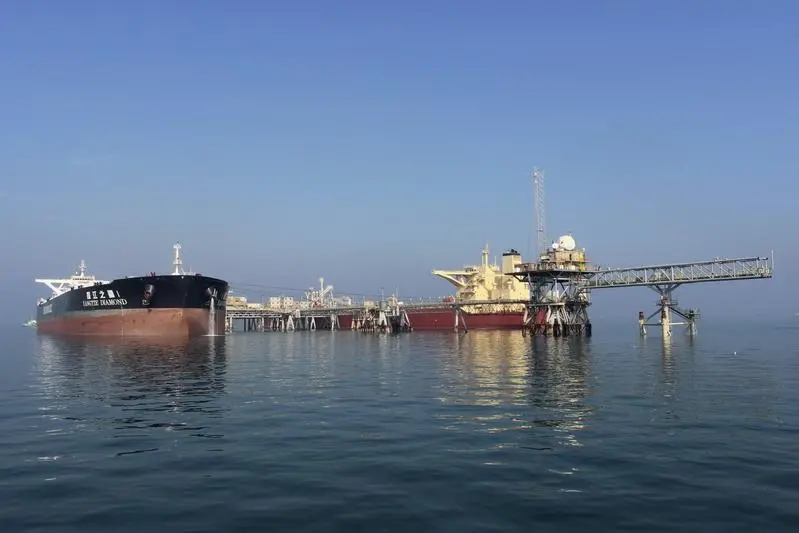PHOTO
SINGAPORE- Chinese national banks and Australia's Macquarie Group are quietly filling some of the multi-billion-dollar hole in Asian oil financing after the withdrawal of traditional European lenders, hurt by a raft of defaults and fraud allegations.
Established financiers still taking on oil transactions, such as France's BNP Paribas and Singapore's OCBC , have raised compliance standards and are shying away from higher-risk small traders and refiners, according to interviews with over a dozen trading and banking executives.
Beijing-controlled Bank of China, ICBC Standard and Agricultural Bank of China are among the few institutions that are expanding credit in the sector, mostly as customers activate dormant lending facilities set up previously but left unused as they were viewed as too expensive or restrictive.
Long-time commodity financiers like the Netherlands' ABN Amro and ING Group , France's Natixis and Societe Generale , and regional players DBS and CIMB have all slashed commodity lending in Asia after last year's coronavirus-led oil price crash triggered a string of defaults that rattled the global oil trading community.
Australia's Macquarie, largely unscathed by the default turmoil, is one of the few established players to expand commodity credit in Asia and has grabbed market share left by retreating European rivals, oil executives said.
But the cutbacks have left lower-tier players - small traders and refiners that are critical links in Asia's fragmented and opaque oil markets – starved of credit just as hopes rise that vaccine rollouts will revive global fuel demand.
"Many banks are going through internal restructuring or taking a wait-and-see stance, or being a lot more selective in borrowers and their counterparties," said Eric Chen, director of business development at trade-focused fintech firm GUUD.
"And corporate governance has become a top focal point."
Even Macquarie's oil finance team, which executives said contains 10 seasoned former traders, is "doubling the time spent on due diligence on each client and each transaction," said a source close to the bank.
Macquarie, which reported a surge in third-quarter profits from commodities trading, didn't immediately comment.
BNP Paribas declined comment. OCBC did not respond to a request for comment.
CHINA LENDING
Chinese banks like BOC and ICBC Standard have each extended hundreds of millions of dollars in credit to help fill the financing void, purchasing and finance directors at three Chinese independent refiners said.
"We used to prefer European banks as they were quicker in approving lines and offered flexible terms," said a Shandong-based refinery official, who asked not to be named due to company policy. "Chinese credits were typically more costly."
Previously treated as a back-up source of financing, Chinese lines now provided about a third of his company's annual credit needs of about $1.5 billion, added the official.
BOC, ICBC Standard, Agbank did not reply to requests for comment.
Two senior Chinese banking officials said customers that pass internal risk assessments are receiving credit. The business is "expanding as others retreat," one added.
But banks remain on alert for "risky" commodities clients, such as small refiners and smelters in China's eastern industrial province of Shandong, where tangled cross-ownership guarantees between businesses are common and pose a risk of default contagion if any single entity fails.
CASH FOR CREDIT
To overcome lender wariness, scores of small traders in Singapore, Asia's main oil trading hub, have been forced to reduce the scale of their activities or put up tens of millions of dollars in cash as collateral.
Traders were being asked to put up funds ranging from 50% to 110% of a cargo's value before securing financing, compared with 10%-15% previously, or even none at all for those with established ties.
"It doesn't matter if you are legitimate and never engaged in any fraudulent trades, everyone starts from ground zero," said a managing director of a small fuel oil trader.
Lenders are now demanding information on a small client's entire portfolio, including trade records for the past two years and background and credit details of all counterparties.
The greater scrutiny is lengthening the time it takes to secure financing and raising the average cost.
Traders can now spend months winning a line of credit, compared with several weeks previously, sources said.
The industry was unlikely, however, to return to where it was, said Omar Al-Ali, partner at law firm Reed Smith specialising commodities finance.
"We'll see banks focusing on their core trading clients, and they'll be leaving it to others to come in and take their place," he said, with trading executives pointing to non-bank lenders, such as credit funds Greensill and TradeFlow Capital.
"We're seeing tripling in last year's unsolicited interest from small-and-medium sized customers searching for non-bank finance support for bulk commodity trades," said Tom James, CEO of Tradeflow.
Greensill did not immediately comment.
Still, the cost of financing is expected to rise. New entrants charged at annualised interest rates of 5-8%, versus 1-2% asked by banks, said one executive.
"These credit facilities come with insanely high interest rates, which means the companies could ... find themselves in trouble later when they have difficulty repaying," added a Singapore-based trade finance lawyer.
(Reporting by Chen Aizhu in Singapore; additional reporting by Cheng Leng in Beijing and Paulina Duran in Sydney and Jessica Jaganathan and Anshuman Daga in Singapore; editing by Richard Pullin) ((aizhu.chen@thomsonreuters.com; +65 6870 3284; Reuters Messaging: aizhu.chen.reuters.com@reuters.net))





















